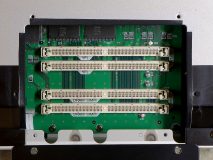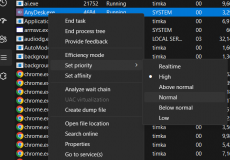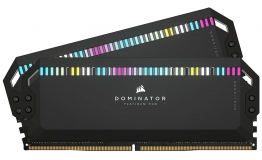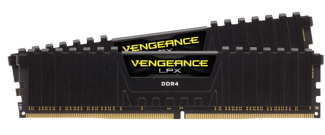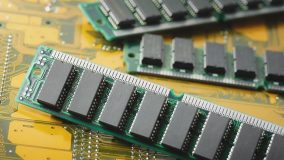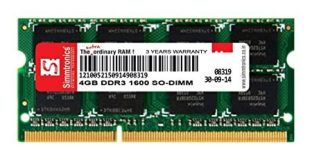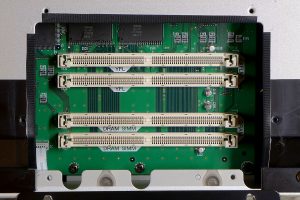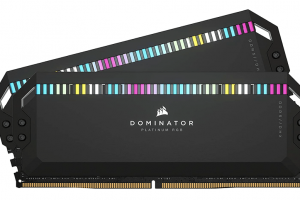The best RAM size that you would ideally need on a computer would be around 32 GB. However, what if you are into high-end tasks and want to check out the 64 GB of RAM for your requirements? How much does 64 GB RAM cost? Let us find out why RAM is so expensive and what makes the 64 GB a good option over 32 GB RAM.
The ideal price of 64 GB RAM would be around $450 to $500. That would be a huge price, and if your budget does not agree with such an amount, you can choose 32 GB RAM. The 32 GB RAM would cost you around $100 to $200 at the most.
Why Is RAM So Expensive?
The enormous cost associated with the RAM might have made you wonder about what makes the RAM so expensive. There are several reasons that make RAM expensively priced.
The lower product volume and high demand from consumers make it one of the prime reasons that make it expensive. A few of the reasons that can make RAM expensive can include the difference between supply and demand, the complex manufacturing technology, and the demand from the smartphone manufacturers that makes it sold very expensively.
A few of the reasons that explain why RAM is so expensive can include
Supply and Demand
The high demand and lower supply have been one of the prime reasons that make the RAM is so expensive. The growth of gadgets has been one of the prime causes that have created a huge demand for the RAM and other components. The demand for the RAM has been increasing consistently, and there has been a very low supply.
There are only a few companies that have been involved in the manufacturing of RAM, and that has created a scarcity for the component, which subsequently has increased the price of the RAM. A few experts believe that the RAM manufacturers do not increase the product volume so that the prices would stay the same.
A complex technology of manufacturing
The RAM technology is quite complex in nature, and it would need a powerful collection of technical equipment. The surrounding environment around the production facility needs to be kept very clean. If any impurities get inside the silicone, you will end up facing issues with the RAM, and that is why you would want the production floor to be clean.
All these parameters can result in increasing the cost of RAM manufacturing. The extensive precautions that you need to focus on will make it quite invariably costly. The high technology and other requirements of the production would make it a prime reason for increasing the cost of RAM
Multiple applications and usage
The use of RAM with the multiple applications and usage makes it high in demand. That should be one of the prime reasons why it is so expensive. The RAM is no longer exclusive to a computer. The RAM has been in an extensive use across several devices – thereby increasing their popularity.
The smartphones and tablets are a few simple examples where you would find the RAM being used extensively. The top companies such as Google and Microsoft focuses on providing the best to their customers. They would leave no stone unturned to do that and thus offer a lot of money to the RAM manufacturers. This is one of the reasons that would increase the cost of RAM.
Shortage of chips
The shortage of chips has been one of the prime reasons that have increased the price of the RAM. While the RAM may not be affected primarily due to this, the upcoming DDR5 module is expected to be dearly affected by the shortage of chips.
The shortage of chips has been around since 2020 and is likely to continue for a while now.
Labor costs
The increase in the labor costs has been yet another prime cause that has affected the price of RAM and made them so expensive. The manufacturing of RAM involves a keen workmanship and knowledge. It does require a huge degree of expertise, and this further increases the lab our cost.
The experts and technicians involved in the design and manufacturing of RAM are quite expensive, and that should be one of the reasons that would make the RAM cost increase to a considerable extent.
Compact design
A compact design of the RAM has been yet another reason that makes it obvious that the RAM costs are increasing quite consistently. Fitting so much of memory and so many components in the RAM module is an easy task.
Getting such a complex design may be challenging. Acquiring the right parts can prove to be a tough choice. That can be one of the reasons for the price increase of a RAM. Moreover, the successive generations such as DDR4 RAM and DDR5 RAM have been instrumental in enhancing options.
Is 64 GB RAM Enough?
In most scenarios, the 32 GB RAM should be quite extreme. While most of the tasks would be handled comfortably with 16 GB RAM, and do not necessarily need 32 GB RAM as such – the 64 GB RAM is definitely something that would be an overkill.
Unless you are into too much of a complex task, the 64 GB RAM may not be the right option. Most of the resource hungry tasks can be handled comfortably with a 32 GB of RAM.
64 GB RAM vs 32 GB RAM – An Overview
The differences between 64 GB and 32 GB can be a deciding factor to help you decide which among the two memory modules that you want to choose. Let us explore the key differences between the 64 GB RAM and 32 GB RAM.
Size
The prime difference between the 64 GB and 32 GB is the size of the two memory modules. The 64 GB RAM is obviously bigger in size as opposed to the 32 GB RAM. Based on what capacity you would expect on your computer, you can decide to opt for either of them.
Stay out of the hype, though. Most of the computers and the complex tasks can work best with the 32 GB of RAM. If you are not into heavy tasks that would invariably require 64 GB of RAM, you can opt for a 32 GB memory module. If you have the necessary budget, choose the 64 GB of RAM as that would leave you future-proof.
Latency
The latency refers to the speed at which the RAM can communicate with the processor. A low latency would ensure a faster performance. The latency on a RAM is generally termed as CAS latency. An acronym for Column Address Strobe latency, it denotes the delay in the cycle times of the memory module. The average latency of the 64 GB RAM is 16, while that of the 32 GB RAM is 14.
Speed
The speed of the 64 GB RAM is generally faster than that of the 32 GB RAM. The speed of a RAM is normally inherent in the size of the RAM itself. Of course, there may not be a hard and fast rule that would determine the speed of the RAM in tune with the size or capacity.
| Feature | 32 GB RAM | 64 GB RAM |
| Capacity | 32 GB | 64 GB |
| Price | Less Expensive | More Expensive |
| Performance | Good for most tasks | Better for demanding tasks such as video editing and gaming |
| Latency | 14 | 16 |
| Average voltage | 1.35 | 1.35 |
The Concluding Thoughts
RAM technology is quite expensive, and there are several reasons that would make RAM technology more expensive. If you find the 64 GB RAM more expensive, it is always advisable to check out the alternatives, such as opting for 32 GB RAM. The proper understanding of 64 GB vs 32 GB, as outlined in the above discussion, should help you arrive at the best solutions.
Frequently Asked Questions (FAQs)
Is 64GB RAM overkill for gaming?
For gamers, the 64 GB should be a great option, but it can be what would make it a overkill in many cases. While most of the games can work really well with the 16 GB, you can opt for a maximum size of 32 GB. Unless you are into a truly powerful task of some nature, you would not necessarily need to go with the 64 GB RAM.

